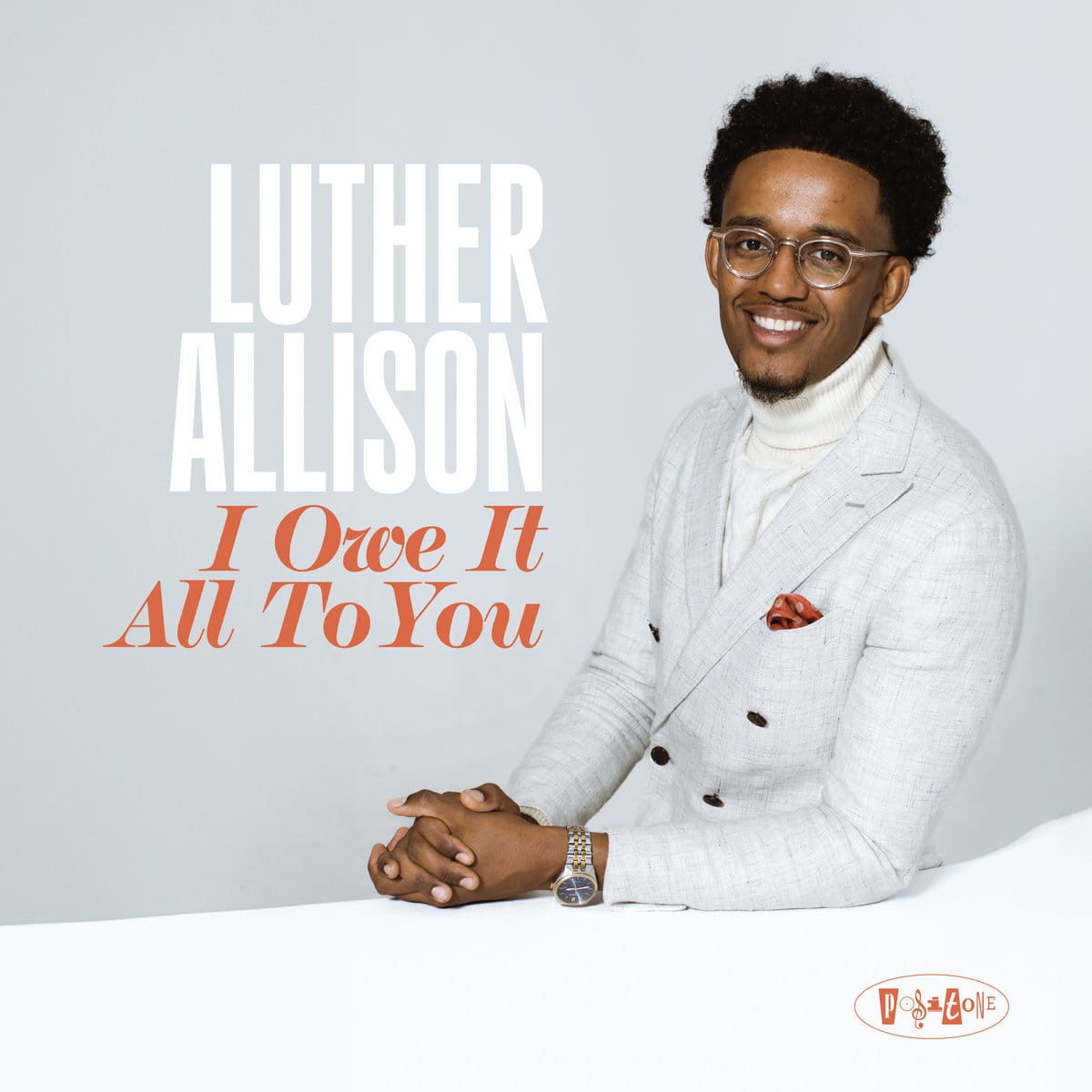Luther Allison: a journey from gratitude to jazz greatness

Gratitude lies at the heart of the creative process. A debut offers not only a glimpse into the composer’s evolving identity but also an opportunity to pay tribute to those who have shaped his artistic journey. As the rhythms and melodies that influenced him take root and flourish, his soundscape expands—echoing the voices and traditions of those who paved the way before him.

Luther Allison’s debut album, I Owe It All To You, goes beyond a typical musical introduction—it’s a heartfelt reflection of his artistic and personal journey. Through his piano, Allison offers glimpses into his faith, inspirations, and the figures who shaped his path. The album pays tribute to those who have guided him, from his family and mentors to God. "The idea for the album was to play songs dedicated to some of my biggest musical inspirations," he explains, referencing his college mentor, Donald Brown, alongside legendary Memphis pianists Mulgrew Miller and Harold Mabern. "I selected two pieces from Donald Brown: one written by him and another arranged by him." Beyond these tributes, Allison presents original compositions he’s developed over the years, blending his admiration for the past with his own evolving voice.
Of the album’s ten tracks, four are original compositions, each carrying a personal story. Rooted in Christian traditions, the first track, aptly titled after the album, holds profound personal significance. Luther explains, "It began as a dedication to Jesus. I owe everything to my savior." Over time, as he played the song more, its meaning expanded. "It evolved into a tribute to those who have invested in me and supported my musical development," he reflects. What started as a deeply personal spiritual expression grew into a broader homage, making it a central piece of the album.
Paying tribute to his musical heroes was both intimate and daunting. In interpreting six songs, Allison approached each with careful consideration and deep respect, striving to honor the original works while expressing his creative voice. "I like to do as much as I can to adjust it—not necessarily for the better, but just to see if there are things I might want to change since I’m approaching it," he reflects. He constantly balances honoring the original compositions with exploring his adaptations. "There are some songs where I feel like the song is so strong and good as it is that I don’t need to do much else to it." Despite his strategy, the process remained intimidating due to the weight of working with his mentors’ compositions. "Taking one of their songs and arranging it is a tall order, so I have to make sure I do them justice in how I interpret it," Luther says, capturing the reverence and challenge behind each tribute.
Drawing from vivid images and scenes, the pianist allows his music to unfold like a script before an audience. "I think of things in terms of drama," he asserts, and this dramatic approach is evident in his work, where each note and chord reflects a profound vision. For instance, his song The Things We Used to Say evokes nostalgia and pays tribute to the legacy of jazz and swing, while Until I See You Again, inspired by his fiancée, captures the warmth of romance. Each piece feels like a personal message evolving through every note, creating the impression of a large ensemble rather than a trio. "When a melody comes to me, I try to sit with it and let it develop. I stay very honest in the process, repeatedly reflecting on it. As I sing, new sections emerge, and I get lost in this state of creativity. The longer I remain in this state, the more ideas come. It’s very meditative, akin to the spiritual experience of worship at church—tapping into a similar place when I create music," he notes.
The album is as much about the ensemble of musicians as it is about Luther himself. His vision for a “big sound,” as he describes it, demanded not only skill but also deep chemistry and trust with his bandmates. Longtime friend and drummer Zach Adleman was a natural choice for the project. “Because he understands my music and me as a person, it informs how he plays and brings out certain sections of each song,” Allison asserts. This intimate understanding significantly enhances the album’s dynamic quality. Equally crucial is bassist Boris Koslov, whose contribution is highlighted by Luther: “Boris has such an amazing sound on the bass—very full, beautiful, and lush.” The collaboration of these musicians, with their profound connection and individual talents, creates a sound that is expansive and rich, perfectly aligned with his vision of an orchestral musical landscape. Reflecting on this approach, Luther adds, "I’m always working towards achieving a big sound—it doesn’t have to be loud, but it should be full. I thought, how can I orchestrate this melody and its harmonies? That’s something I’ve been focusing on even more."
The goal of this album was to create music that feels soulful, singable, and uplifting. I hope that it brings comfort and makes people feel better.
Improvisation is a dynamic force that shapes both Allison’s music and his life. "This element is a method for navigating unexpected scenarios," he explains, drawing a clear parallel between the art of jazz and life’s inherent unpredictability. Over time, his approach has evolved from relying on "worked-out or written-out solos" to embracing a more spontaneous, organic style. "Previously, I relied on things I worked out beforehand," he notes, but now he explores how improvisation adapts to unforeseen shifts in the music. During the album’s recording, he describes being "more open to chance and the unexpected," letting improvisation guide the process. This openness infuses each track with immediacy and vitality, creating a fluid, unscripted dialogue that keeps both him and the listener fully engaged.
I Owe It All To You is an album that journeys from gratitude to leadership. Luther Allison has crafted a sonic world where listeners can reconnect with the sound of Memphis while tracing his musical lineage. Across ten tracks, he evolves from sideman to a confident bandleader, guiding a trio that feels as expansive and dynamic as a much larger ensemble.